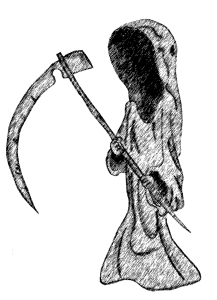 To [Henry Ward Abbot]
To [Henry Ward Abbot]
[Summer 1932] • [Rome, Italy, or Paris, France]
. . . . pessimism, questionings about a future life, or the desirability of death. Somehow I seem not to feel the edge of those uncertainties, as I did fifty years ago: but, more objectively considered, the moral anarchy of the world is no less interesting. I am reading an excellent book by Papini, “Gog”:1 the Catholics seem now to be the best critics: Maritain, Papini, T. S. Eliot2 (an amateur Catholic): it is not their faith that makes them clear-sighted, but their remoteness from the delusions of the age. In America, Edmund Wilson seems rather good: but he is academic; has learned his authors.
I have been rereading John Locke, for a lecture I am to give in Bloomsbury in October: a bit prosy, and speculatively poor, but pungent and genuine in his common sense.
You keep asking about my novel: it is not finished, perhaps never will be, and is not likely to be published in my life-time. Don’t think of it. I will send you my lectures on Spinoza and Locke when they are printed— my last appearances in public!
Your old friend, G.S.
- Giovanni Papini (1881–1956), an Italian writer and philosopher, was one of the founders of the philosophical journal Leonardo. A bitter opponent and critic of Christianity, he was converted after World War I to Catholicism and became an exponent of religious orthodoxy. His works include Gog (1931), a satire on modern society.
- T[homas] S[tearns] Eliot (1888–1965), an American-born poet, dramatist, and critic, became a British subject in 1927. He was awarded the 1948 Nobel Prize in literature for his contribution to poetry.
From The Letters of George Santayana: Book Four, 1928-1932. Cambridge, MA: The MIT Press, 2003.
Location of manuscript: Butler Library, Columbia University, New York NY
